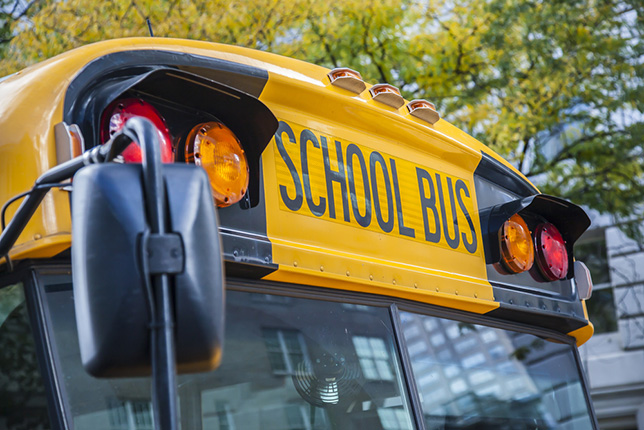Alabama SD Reduces School Bus Idle Times with New Software
- By Yvonne Marquez
- 09/25/19
Montgomery Public Schools (MPS) in Alabama recently installed Verizon Connect, a GPS fleet tracking software, that has significantly reduced school bus idling times by almost 80 percent. The new software has also helped the school district track driving behavior and maximize routes.

MPS first installed Verizon Connect on 80 of its white fleet maintenance and security vehicles earlier this year. At the start of the school year, the district installed it on 220 school buses and now all the district’s vehicles are equipped with the software.
“With the software, our idle time has probably gone down 70 to 80 percent from when we started. We’re probably saving anywhere between 1,500 to 2,000 miles a week in travel,” Chad Anderson, executive director of operations at MPS, told School Transportation News. “The technology helped us pinpoint the gut feelings we had and put data behind it.”
Verizon Connect gathers data and gives insight into fleets so that way customers better understand productivity, efficiency and safety. First, hardware is installed on a school bus that will communicate with the software’s application. Once logged into the software, the user can see a live map of all the school buses in their fleet in almost real-time. The software tracks the speed of a school bus, where they are headed, what route they’re on and whether the buses are idling or moving.
The software can also be integrated with another application that can provide location data to parents who want to track their children.
Anderson said the software has helped MPS ensure driver accountability, look at fuel efficiency, and ultimately save money.
“The more efficient school buses are being used, the less wear and tear on the vehicle,” Anderson said to School Transportation News. “The harsher the school buses are being used, or the more frequent use, the more likely they are going to need any sort of repair or maintenance associated with it, again, that’s another cost to the school district.”
About the Author
Yvonne Marquez is senior editor of Spaces4Learning. She can be reached at [email protected].